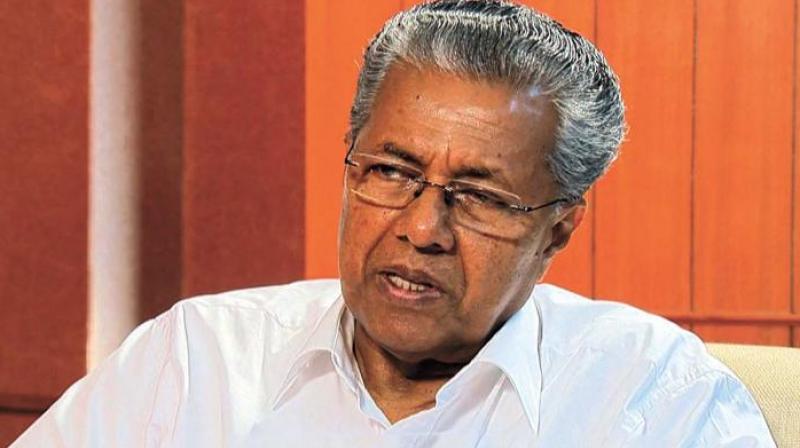Kerala CM Pinarayi Vijayan must face trial in SNC Lavalin case: CBI to SC
The Kerala High Court had given a clean chit to CM Pinarayi Vijayan last year in the SNC-Lavalin case.

New Delhi: In a move which has political overtones, the CBI on Saturday informed the Supreme Court that the Kerala Chief Minister Pinarayi Vijayan has to face the trial in SNC Lavalin case and his discharge order should be set aside.
In January this year the apex court had stayed the trial and had sought the response of the CBI, which was filed today.
In its affidavit, the CBI said SNC Lavalin had obtained huge wrongful gain on account of contracts awarded to them and this fact is an important aspect, which the Kerala High Court failed to consider while discharging him.
It pointed out that the changes in the terms of contract were made when Pinarayi Vijayan was in Canada as the guest of Lavalin in February 1997.
It said the high court did not consider these facts while letting him and two others off the case.
Clarifying its stand on the petition filed by KG Rajasekharan, R Sivadasan and Kasturi Rangan against the high court verdict, the CBI maintained that the SNC-Lavalin Kerala hydroelectric scandal is a financial scandal related to a hydroelectric infrastructure contract between the Indian government and Canadian company SNC-Lavalin in 1995 which resulted in an alleged net loss to the Indian exchequer of Rs 375 crores.
The CBI faulted the Kerala High Court for acquitting the Chief Minister of all corruption charges in August last year citing insufficient evidence against him.
It said the SNC-Lavalin case relates to the award of a contract to a Canadian company for the renovation and modernization of three hydel power projects in the state in 1997. Pinarayi Vijayan was then the power minister of the state.
The CBI alleged that Pinarayi Vijayan wrongly entered into contracts with SNC Lavalin in February 1997 without any expert feasibility study or technical reports.
It had alleged that there was neither any global tender called for the projects nor fixation of rates.
It has pointed out that Pinarayi Vijayan and two others were exonerated in the case without a clear finding to point out the reasons for their discharge.
The CBI said its chargesheet pointed to a collective responsibility of all the accused persons, including Pinarayi Vijayan.
The agency said it was extraordinary that Pinarayi Vijayan and two other accused people were discharged from all charges in the case even before the commencement of the trial, while the high court ordered the prosecution of the remaining accused.
The High Court had dismissed the discharge petitions of KG Rajasekharan Nair, then Member (Accounts) of the Kerala State Electricity Board (KSEB), R Sivadasan and Kasthuriranga Iyer, who was Chief Engineer (Generation) in the Board and they filed appeals against this order.
The CBI, said there was “ample material to show the involvement” of Pinarayi Vijayan in the Lavalin deal. The CBI said the high court accused it of adopting a “pick and choose” policy in naming certain persons as accused. But in fact, the CBI countered, it was the court that employed such a policy by discharging certain accused persons while leaving the rest of the charge-sheeted persons to face trial.”
The CBI said all decisions were taken with the knowledge of all the accused people named in the chargesheet and discharge of the accused may lead to miscarriage of justice and delay the trial.
The petitioners who were not discharged in their appeals said two important questions of law arise in the facts of the present case, on the nature and manner of exercise of the power of a revisional court under Section 397 of the Code of Criminal Procedure.
The first question is whether it is permissible for a High Court to reverse an order of discharge without finding fault with the “correctness, legality or propriety” of the order and without arriving at a prima facie finding that a case is made out against the accused for the purpose of framing charges and whether a High Court can apply differential standards in respect of two sets of accused.

